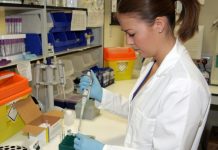When you select a treatment program for yourself or a loved one, you may feel initially intimidated by this task. This is a normal response. You want to get the person into treatment as soon as possible, but you have to navigate unfamiliar terminology.
Focus your search around the most critical questions to ask when selecting a drug treatment program. By asking these questions, you can select a program of the highest quality.
Is the Program Accredited?
Whether you are searching for California drug treatment or treatment elsewhere, the first thing to look for is an “accredited program.” You do not want to send your child or loved one to a program that answers to no one regarding its methods and results.
Rather, you want a program that has voluntarily chosen to go through the accreditation process in the drug and alcohol treatment field. There are different types of accreditation, but basically you want to look for a program that is accredited by the licensing board in the state it operates in.
What Do Participants and Loved Ones Say?
As a parent, partner or loved one in charge of choosing a treatment program, you want to hear what past program participants and their loved ones have to say about the program’s outcome.
Did the participant find it met their needs? Did parents, partners and loved ones notice a change when the person came home? Were they able to stay clean? If they struggled after returning home (a very normal and natural occurrence) did the treatment staff provide extra support? As a parent in particular, these are all essential questions to research before finalizing your decision.
Does the Program Offer Aftercare Support Services?
Aftercare support services are one of the most important components of a drug treatment program. This is because, while the initial detoxification, education, therapeutic and rehabilitation phases of treatment can set the program participant up for long-term success, it is in the returning-home phase where old familiar challenges and temptations rear their ugly heads again.
Is the Methodology EmpiricallyBased?
Empirically based means that there is evidence the program produces the results it claims to. Some methods have been in use for years and so there is enough evidence that the program is effective under certain sets of circumstances (such as where a participant agrees to a certain length of stay or to follow all the phases in order).
However, other program methods are still being tested. You want to look for information — or ask for it, if necessary — that shows the program is effective.
How Long Is a Typical Stay?
Some programs ask for a longer length of stay than others. There are good reasons for this: Different people come into treatment with different backgrounds and histories. Also, for programs with a more comprehensive agenda (for instance, detox and education, therapy and transition assistance) it takes longer to complete each phase at a level that leads to lasting abstinence.
Is Financial Assistance Available?
If you need financial assistance or a payment plan, know that many drug treatment programs offer this. Not everyone has insurance that covers drug treatment or has the financial resources to pay for treatment upfront.Ask about this if you need it.
Is the Staff Fully Licensed in the Treatment Field?
Finally, you want to verify the staff treating your child or loved one is fully licensed in the field of drug and alcohol treatment. You can usually find this information on the website. If you can’t see it, be sure to ask.
These critical questions can get straight to the heart of selecting a program you can feel confident will benefit your child, partner or loved one.
About the Author: Laura Monaghan is a contributing blogger who works at RehabHotline.org. She has personal experience with addiction and understands the process of choosing the right drug treatment program.
Photo Credit By: newbeginninghealth.com













